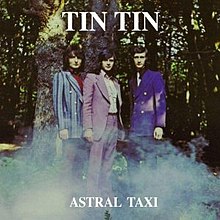
Maurice Ernest Gibb was a British musician, singer, songwriter and record producer who achieved fame as a member of the Bee Gees. Although his elder brother Barry Gibb and fraternal twin brother Robin Gibb were the group's main lead singers, most of their albums included at least one or two songs featuring Maurice's lead vocals, including "Lay It on Me", "Country Woman" and "On Time". The Bee Gees were one of the most successful rock-pop groups of all time.

Cucumber Castle is the seventh studio album by the Bee Gees, released in April 1970. It was produced by Barry Gibb, Maurice Gibb, and Robert Stigwood. It consists of songs from their television special of the same name, which was named after a song on their 1967 album Bee Gees' 1st. Cucumber Castle is the only Bee Gees album not to feature any recorded contributions from Robin Gibb, as he had left the group before the album was recorded.
Stephen Alan Kipner is an American-born Australian songwriter and record producer, with hits spanning a 40-year period, including chart-topping songs such as Olivia Newton-John's "Physical", Natasha Bedingfield's "These Words", and Christina Aguilera's "Genie in a Bottle", for which he won an Ivor Novello Award for International Hit of the Year. Other hits he wrote include Chicago's "Hard Habit to Break", 98 Degrees' "The Hardest Thing", Dream's "He Loves U Not", Kelly Rowland's "Stole", The Script's "Breakeven" and "The Man Who Can't Be Moved", American Idol Kris Allen's top 5 debut "Live Like We're Dying", Cheryl Cole's "Fight for This Love", Camila Cabello's "Crying in the Club" and James Arthur's "Say You Won't Let Go".
Tin Tin was a pop rock band, which first formed in Australia as The Kinetics in 1966. They relocated to the United Kingdom in 1969 and were renamed as Tin Tin, which comprised Steve Kipner, Steve Groves, John Vallins and Geoff Bridgford (drums). In 1970 they issued a single, "Toast and Marmalade for Tea", which was a No. 10 hit on the Go-Set National Singles Chart in June the following year. It reached No. 20 in the United States on the Billboard Hot 100. Their next single, "Is That the Way?" (1971), peaked at No. 59 on the Billboard Hot 100.
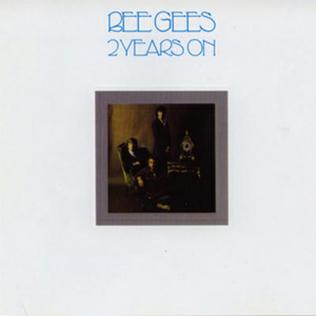
2 Years On is the eighth studio album by the Bee Gees, which reached No. 32 on the US charts. Released in 1970, the album saw the return of Robin Gibb to the group after an earlier disagreement and subsequent split following Odessa. 2 Years On was the first album with drummer Geoff Bridgford, who remained a full-time member of the group until 1972 although he was not pictured on the sleeve. The best-known track is "Lonely Days". Released as the first single by the reunited brothers, it charted high in the US, but peaked at No. 33 in the United Kingdom.
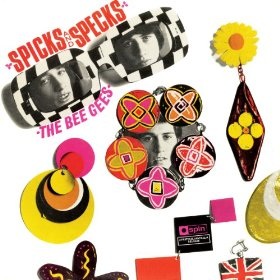
Spicks and Specks is the second studio album by the Bee Gees. It was released in November 1966, on Spin. Primarily written by Barry Gibb, the album features the first Robin Gibb composition "I Don't Know Why I Bother With Myself" and a Maurice Gibb composition "Where Are You".

"Toast and Marmalade for Tea" is a song by the Australian rock group Tin Tin, and was written by Steve Groves and produced by Maurice Gibb. It was a Top 20 U.S. hit in 1971.

That's What Friends Are For is an album by American singers Johnny Mathis and Deniece Williams that was released in July 1978 by Columbia Records. The project was a continuation of the pairing of the artists that began on his previous LP, You Light Up My Life, which included "Too Much, Too Little, Too Late", the duet that was on its way to number one on three different charts in Billboard magazine as the recording sessions for this album got underway.
Carl Arnold Groszmann was an Australian songwriter and musician.
The Loner is an album recorded in late 1969 by Maurice Gibb of the Bee Gees, but never released. An album master was compiled on 14 November 1970 although it would remain unreleased. Bootleg releases with the same title collect additional recordings unrelated to this album.
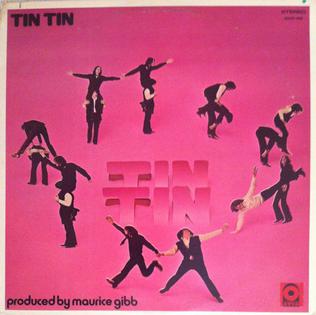
"Tin Tin" is the first studio album by the Australian group Tin Tin, produced by Maurice Gibb.
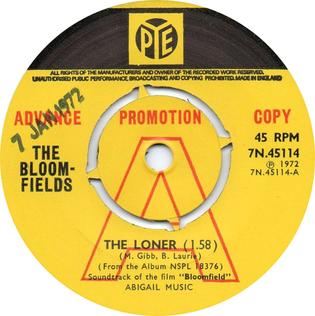
"The Loner" is a song written by Maurice Gibb and Billy Lawrie and originally included on Gibb's The Loner which was not released, although British rock band The Bloomfields covered the song and their version was released internationally, featuring a lead vocal of Billy Lawrie and Maurice Gibb, with Gibb on guitars and bass. They recorded this song for the film Bloomfield, but the film was called The Hero in America. The song starts with a drum fill. Gibb and Lawrie sang together in harmony on the line I'm a loner. On the record, Billy Lawrie was credited as 'B. Laurie'.
The Fut were a short-lived British rock group formed in London in 1969, consisting of Maurice Gibb, Steve Groves, Steve Kipner and Billy Lawrie. Their only single was "Have You Heard the Word", released in the UK on Beacon Records. This was the first time since the formation of the Bee Gees that Gibb, who was still in the group, had performed with other group without them. Groves and Kipner was originally from Tin Tin.

"Have You Heard the Word" is a song recorded by British rock group The Fut. Written by Steve Kipner and Steve Groves. It is the band's only single. Most of the vocals were sung by Maurice Gibb, the rest were sung by Kipner and Groves. The B-side "Futting" was only an instrumental. This song features an impersonation of John Lennon by Maurice. It was released as a single on 7 March 1970 but did not chart.
John Vallins is an Australian Gold and Platinum award winning songwriter/musician best known for his 1970s song "Too Much, Too Little, Too Late".

You Light Up My Life is an album by American pop singer Johnny Mathis that was released on March 13, 1978, by Columbia Records. While this LP includes three new songs, it doesn’t stray too far from the format of his albums of recent years in covering established material, including a standard, a country number, something from Broadway, and a few soundtrack tunes.

Tears and Laughter is a compilation album by American pop singer Johnny Mathis that was released in the UK in 1980 on the CBS Records label. The title summarizes how the album is thematically organized, with the back cover labeling side one as "Tears" and side two as "Laughter".

The Best of Johnny Mathis 1975–1980 is a compilation album by American pop singer Johnny Mathis that was released in the fall of 1980 by Columbia Records. This collection is similar to his last major compilation, 1972's Johnny Mathis' All-Time Greatest Hits, in that it excludes many of his American radio hits of this period in favor of songs that made the UK singles chart or contemporary hits by other people.

Celebration – The Anniversary Album is a compilation album by American pop singer Johnny Mathis that was released in the UK in 1981 by the CBS Records division of Columbia. Two of the covers on this release had not previously been included on any Mathis album: Stevie Wonder's "If It's Magic" and a new version of Mathis's 1976 song "When a Child Is Born" that was recorded with Gladys Knight & the Pips and reached number 74 on the UK singles chart during a two-week run that began on December 26, 1981.

The Essential Johnny Mathis is a compilation album by American pop singer Johnny Mathis that was released in 2004 by Columbia Records and includes several of his early hits such as "Chances Are" and "Misty" as well as a wide assortment of selections spanning more than four decades of his recording career.
